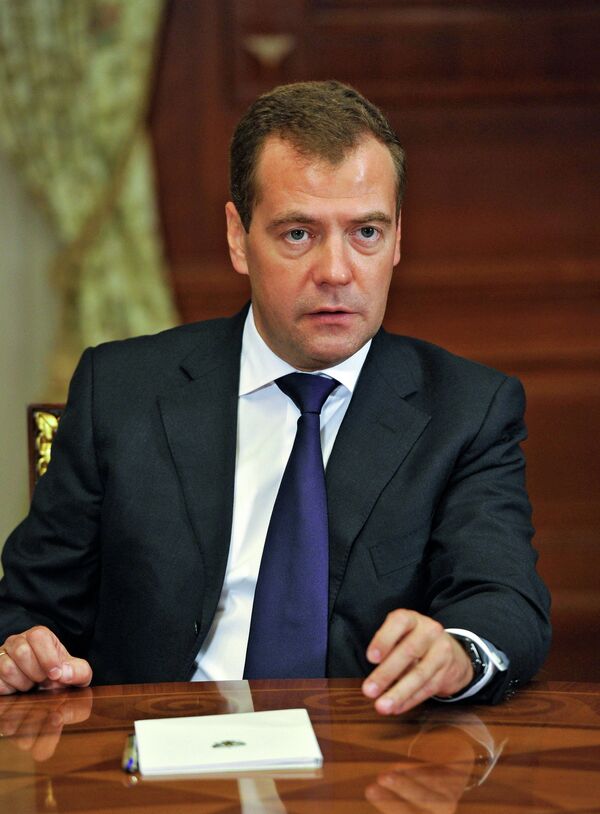The Russian Government cannot rule out changes will be required in the funding system for the pensions system as part of the a future reform of the system, Prime Minister Dmitry Medvedev said on Thursday.
"I don't rule out that reform of the pension system will involve changes to its funding system," Medvedev said at a government meeting. "But the decision should be made after a discussion in society, which is proper in a normal society - open, public, in contact with all political forces."
The Finance Ministry has proposed stimulus measures to persuade citizens to draw their pensions at a later age. Finance Minister Anton Silyuanov says the Finance Ministry insists that the employee-contribution funded part of the pension system must not be cut or eliminated.
Reform of the pension system is likely to meet significant public opposition. Many Russian politicians denied prior to last year's Duma elections that any changes to the system were necessary at all.
Russia faces a looming funding crisis for its pension system, with an aging population and falling number of workers to support more retirees. Pension reform has been a sensitive issue, with strong public opposition to a raising of the retirement age. The government has significantly raised pension payments in the last few years.
In April, Vladimir Putin, then Russian Premier and President-elect, said in his Duma address that raising the retirement age was unacceptable and unnecessary.
Finance Minister Anton Silyuanov said in June pension reform in Russia will not include an increase in the pension age.
The International Monetary Fund (IMF) said in mid-June the pension age in Russia should be increased to 63 years for both men and women.
Russia's Finance Ministry has also proposed increasing the pension age from 2015. The ministry said the age should be raised gradually, by six months for women and three months for men annually until both categories reach an equal retirement age. Currently, women retire at the age of 55 and men at the age of 60 in Russia.


